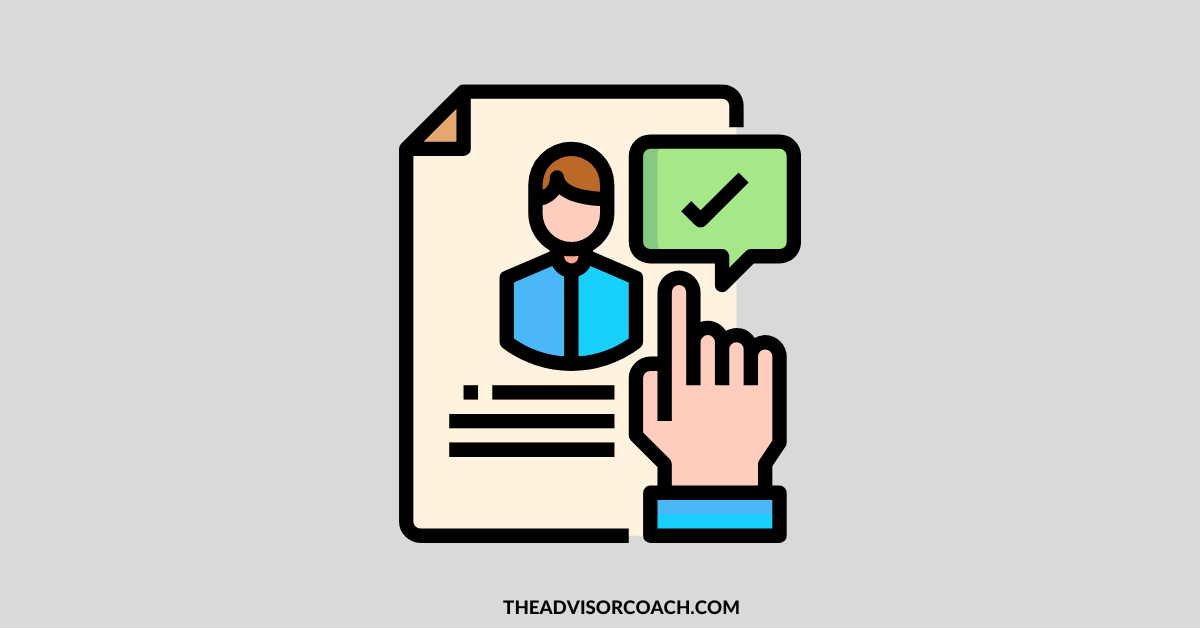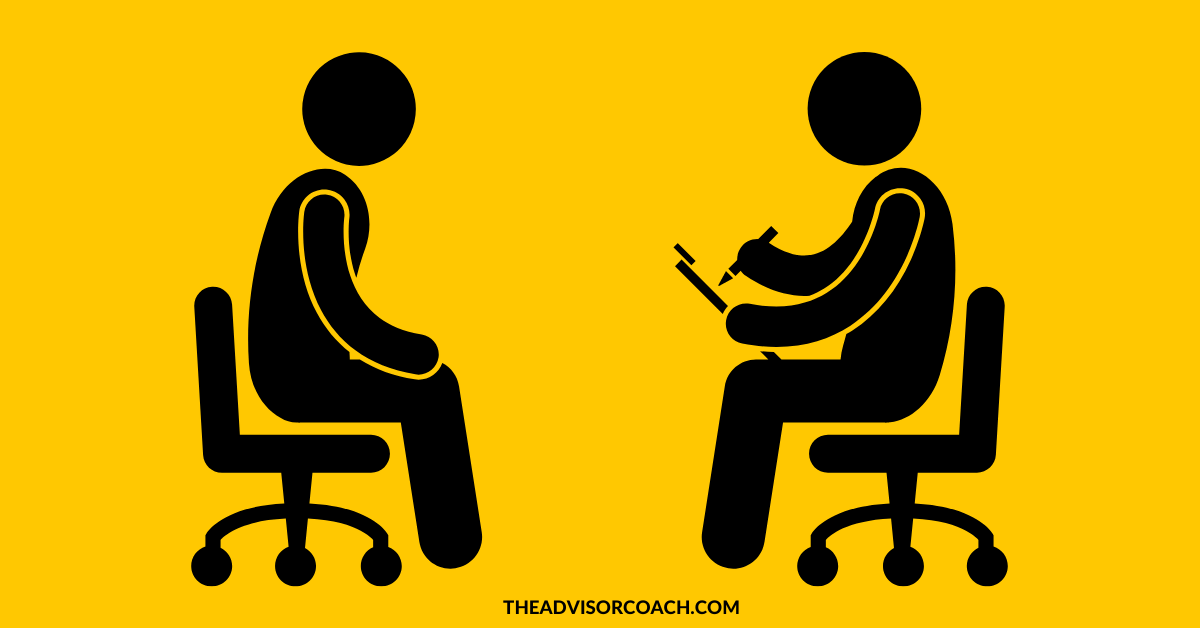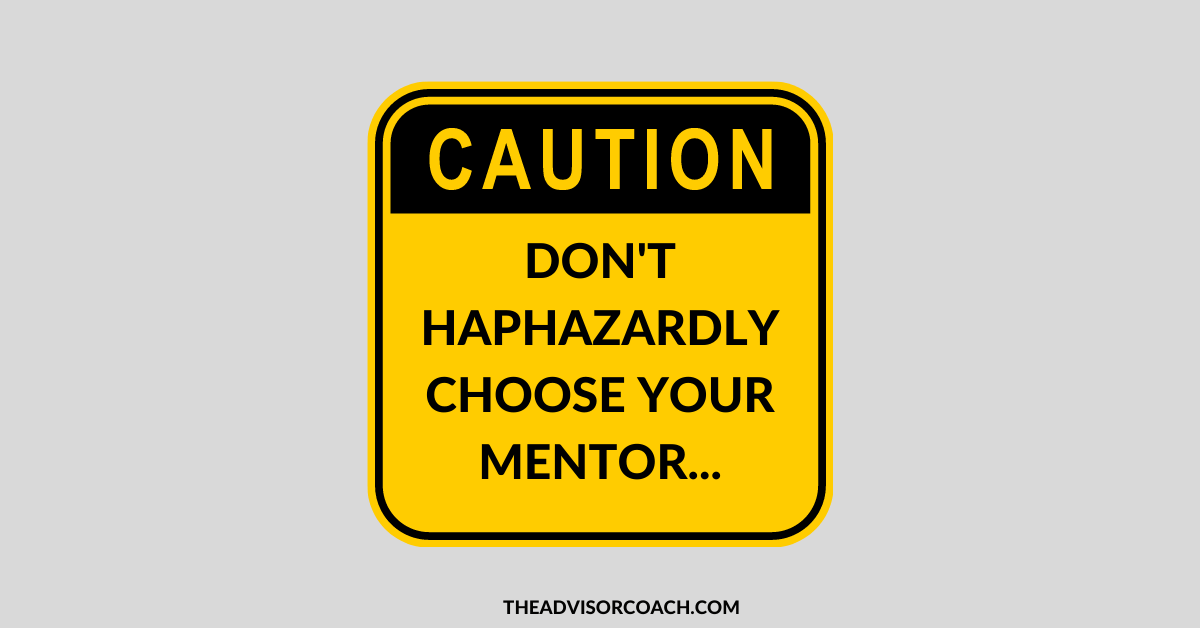Looking For A Financial Advisor Internship? Here Are 10 Things You Should Know...Ah, a financial advisor internship.
A stepping stone to the wonderful career of financial advising. If you’re currently looking for one of these internships, congratulations. I’m here to help you. Having an internship is great because you’ll gain valuable experience to complement your classroom learning, enhance your resume, and make valuable professional contacts. Because as someone who specializes in helping financial advisors build their businesses, I know what advisory companies want in an intern. Plus, I’ve been on both sides of the hiring table and I’ve had the pleasure of helping hundreds of new financial advisors make their way into the financial services industry. It’s my honor to help you now. Here are some things I think you should know before you take on your financial advisor internship… ALSO READ: Pros And Cons Of Being A Financial Advisor 1. Familiarize Yourself With The CompanyNot all internships are created equal.
An internship at Edward Jones will be different from an internship at Northwestern Mutual, and both of those will be different from a small RIA. I encourage you to read every word of the job listing and description. Read about the company. Hop on LinkedIn and see if you can find any current or former interns. Ask them questions. Know what you’re getting yourself into. It’s important for you to do this because financial services companies vary in their policies, procedures, culture, etc. You may not want to commit yourself to an internship at a company which doesn’t align with your personality. 2. Understand Your RoleEven after familiarizing yourself with the role and the company, you may be left wondering:
“What will I DO in the role?” Well, your day-to-day responsibilities may differ from company to company, but here are some of the most common tasks I’ve seen interns focus on:
3. Realize That Advisors Depend On MarketingMarketing is, without a doubt, the most important thing a financial advisor can do. I mean, think about it - an advisor has to find people to serve. That’s marketing. Without marketing, a financial advisor doesn’t have anyone to advise.
Many interns I’ve interacted with are shocked at the amount of marketing involved in the business, especially if they’re working with highly successful advisors. The most successful advisors are the ones who never stop prospecting and are constantly executing their marketing plan. In my experience, one of the biggest reasons for the high turnover rate in the financial advisory career track is because new advisors don’t expect to do much prospecting and marketing. They think they’ll be reading financial papers and picking stocks all day. They’re flabbergasted when they realize they have to go out into the marketplace and get clients. Here’s one of the most important lessons you can ever learn as a financial advisor: your income is determined by how many people you serve and how well you serve them. In order to serve more people, you must market and prospect. ALSO READ: 15 Prospecting Tips For Financial Advisors 4. Know What Companies Look For In An InternMost companies look for the same things when they hire a financial advisor intern. They are:
Companies often use their internships as the proving ground that you can do the job. They also use internships as a pipeline for hiring. It’s a way for them to see if you’re any good before they hire you in a full-fledged role. That’s also why they’re more apt to hire someone who truly wants to become a financial advisor. 5. Prepare For Your InterviewA common question I get from students seeking a financial advisor internship is, “What questions are asked during the job interview?”
Here are some of the most prevalent ones I’ve seen over the years… “What would you like to do with your future?” This is the company sniffing out whether or not you have an interest in becoming a financial advisor. If you answer that you’d like to go to clown school and be a juggling opera clown, they’re going to question why you’re at the interview. “What do you know about us?” Make SURE you research the company beforehand. I recently had a conversation with a financial advisor recruiter who told me that the biggest mistake candidates make is not being prepared. It’s important to show that you want to work with THEM specifically, and why. It’s incredibly difficult to do this without doing your homework. Plus, it shows you take initiative and that you value being prepared - both great qualities to have as a financial advisor. The majority of financial advisor internship interview questions are behavioral-based questions. They’re the “tell me about a time when…” questions like:
Also, make sure YOU ask questions at the end of the interview. It shows that you’re interested. If you don’t prepare smart questions to ask at the end of your interview, you run the risk of the interviewer assuming you aren’t interested in the role. In my experience, you should prepare two questions which demonstrate your interest in the position and your desire to excel in the role. Some sample questions to ask at the end of your interview include:
ALSO READ: A Day In The Life Of A Financial Advisor 6. Ace Your First DayIf you feel nervous on your first day, relax. It’s normal. Just remember that nobody expects you to be an expert from day one. Maybe the copier won’t cooperate with you or you can’t figure out how to import an appointment into the CRM - ask questions. You’re not the first person to run into issues like these and you certainly won’t be the last.
Another thing I recommend to ease those first day jitters is to do a practice run of your commute beforehand. You’ll be less stressed because you won’t be as worried about getting lost or being late. Next, make sure you dress the part. First impressions count a lot and you want to ensure you’ve dressed appropriately. Ask about the dress code - you don’t want to make the mistake of showing up in a suit when the dress code is business casual. Finally, get in touch with your supervisor and ask what to bring on your first day. You may have to fill out some forms or bring some sort of identification with you. Either way, bring supplies like a pen and a notebook, a snack in case you get hungry (super important) and any documents you were given. 7. Treat It Like A Real JobIt’s sad that some interns don’t take their financial advisor internship opportunity seriously. You should treat it like a real job because it is! Even though you’re “just an intern”, your work still has an impact on the company and the clients it serves.
If you don’t take your role seriously, you likely won’t be offered a position once your internship is over and you won’t be able to use the internship as a positive reference on your resume. In other words, if you don’t take it seriously you’re wasting your time. 8. Make The Most Of The Resources Around YouThis is closely related to the previous tip about taking the internship seriously. During your internship, you should talk to people. Ask about their experiences and what makes them tick. Why do they love (or hate) what they do? What are some horror stories they can tell you? If you’re going to intern for a financial advisory company, you might as well take the time to learn as much about being a financial advisor as you can.
One financial advisor intern I knew would ask people in the office for fifteen minutes of their time to chat over coffee. He would buy them coffee and come prepared with specific questions. That same intern also understood the importance of investing in himself. Most companies love to see their employees learning and growing. This could be as intensive as attending a conference across the country or as simple as buying a book or MP3 related to your career. For example, a financial advisor intern from Chicago got Your First Year As A Financial Advisor and discussed it with the people in his office. They were so impressed with him investing in himself that it was one of the factors which led to him being offered a position. However, even though I want you to learn from the people in the company… 9. Be VERY Careful When Picking A MentorI know this piece of advice is extremely unpopular. Especially because nearly all new financial advisors are told they need a “mentor!” to succeed. I’m sure this advice is well-intentioned, but the road to hell is paved with good intentions.
It’s advice like this which consistently fails financial advisors. Because let’s use some common sense here… Do you REALLY think that the most successful financial advisors have time to just lounge around and spend hours telling you all they know? Get real. Yet, so many new advisors get sucked into this “mentor!” trap. Because one of the biggest problems with getting a mentor as a financial advisor is that the “mentor” may recommend things that worked twenty or thirty years ago but are completely obsolete today. In his book, No B.S. Sales Success In The New Economy, marketing legend Dan Kennedy tells a story of how he worked with a client who had three veteran salespeople who were stubbornly unwilling to make outbound phone calls. At Dan’s urging, the client hired three additional salespeople to follow up with leads - but he made the mistake of putting them in the same office as the grizzled veterans. In less than two weeks, the veterans RUINED the new salespeople. So, be cautious about picking your mentor. Keep your eyes and ears open. Use your independent thinking skills to carefully weigh every piece of advice you’re given against your own experience, knowledge, and common sense. 10. Realize That Everything Is A Learning Experience.This advice is true for life in general. Life is full of discoveries and things to learn. And whether you’re given the work you expected or not, it’s up to you to make the most of the opportunity and learn from it.
You may not change the world with your internship, but you’ll gain valuable insight and perspective on both the working world and your professional goals. In a nutshell, you’re trying to figure out what you want to do with your life. If you discover that financial advising isn’t for you, that’s okay. It’s much better to figure that out with an internship than with a full-fledged career. If your internship simply confirms the fact that you’re crazy about being a financial advisor, I’ll be here to help you. 😎 ALSO READ: 10 Things I Wish All Entry Level Financial Advisors Knew |




